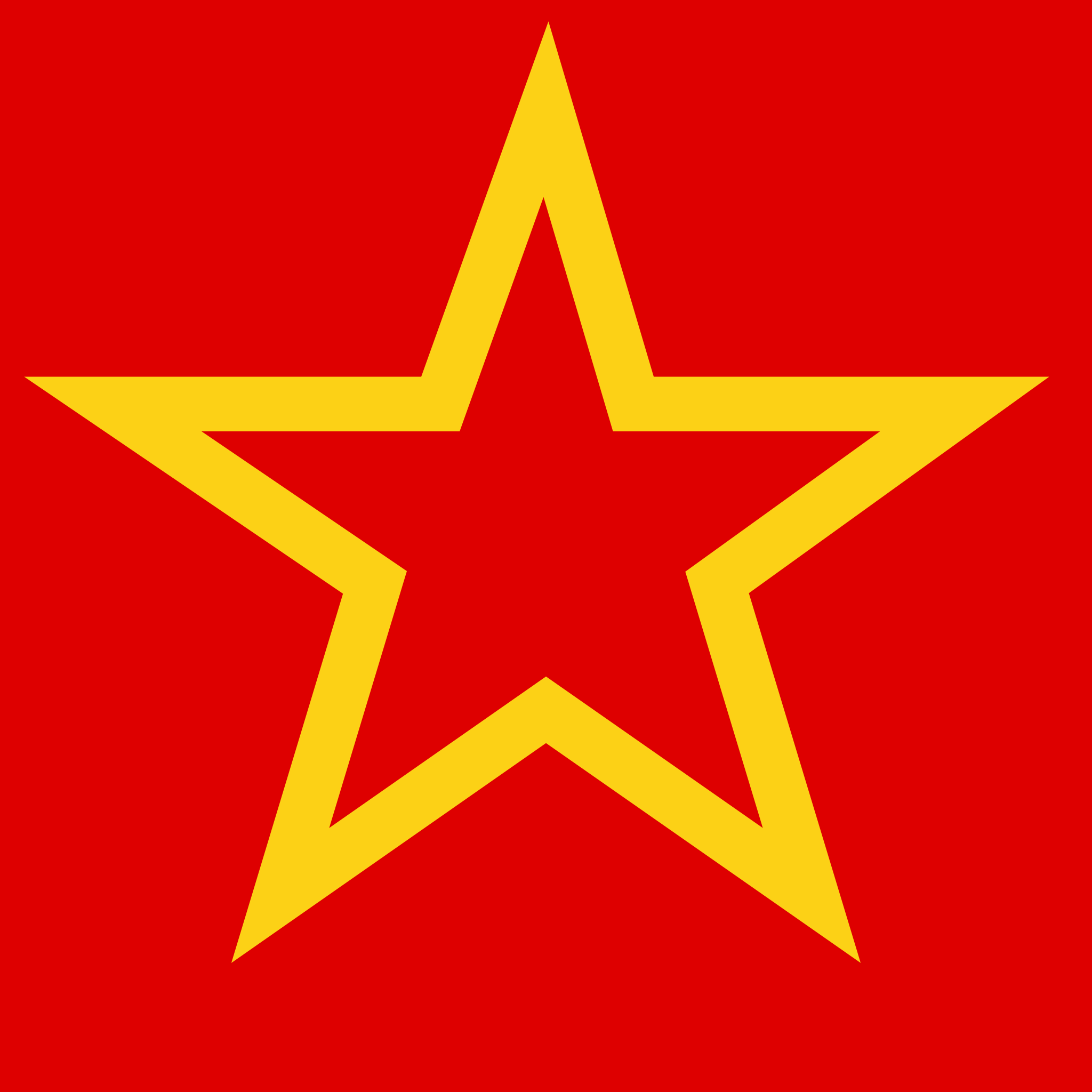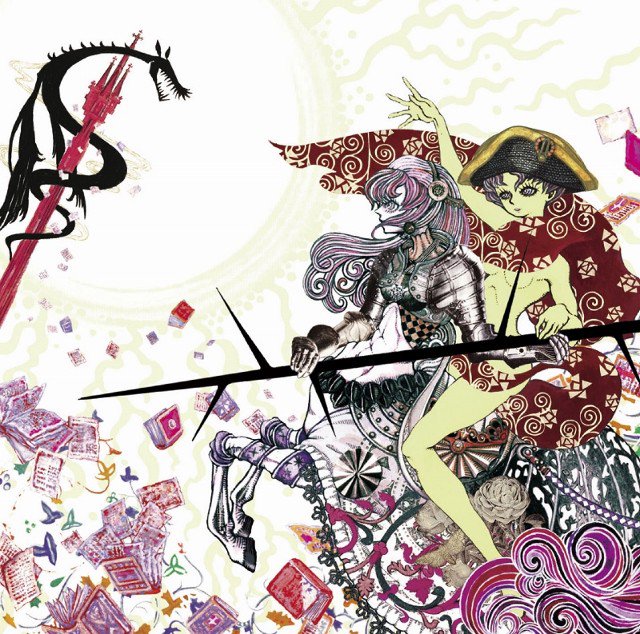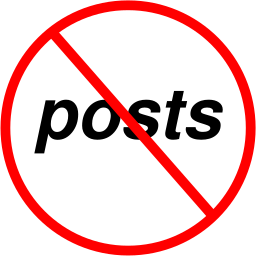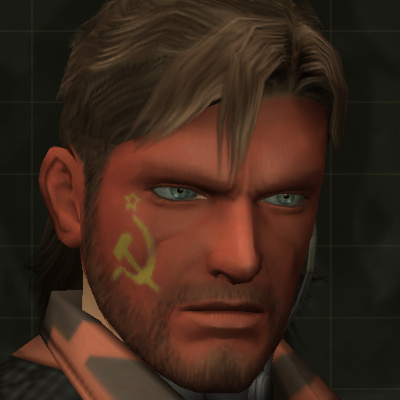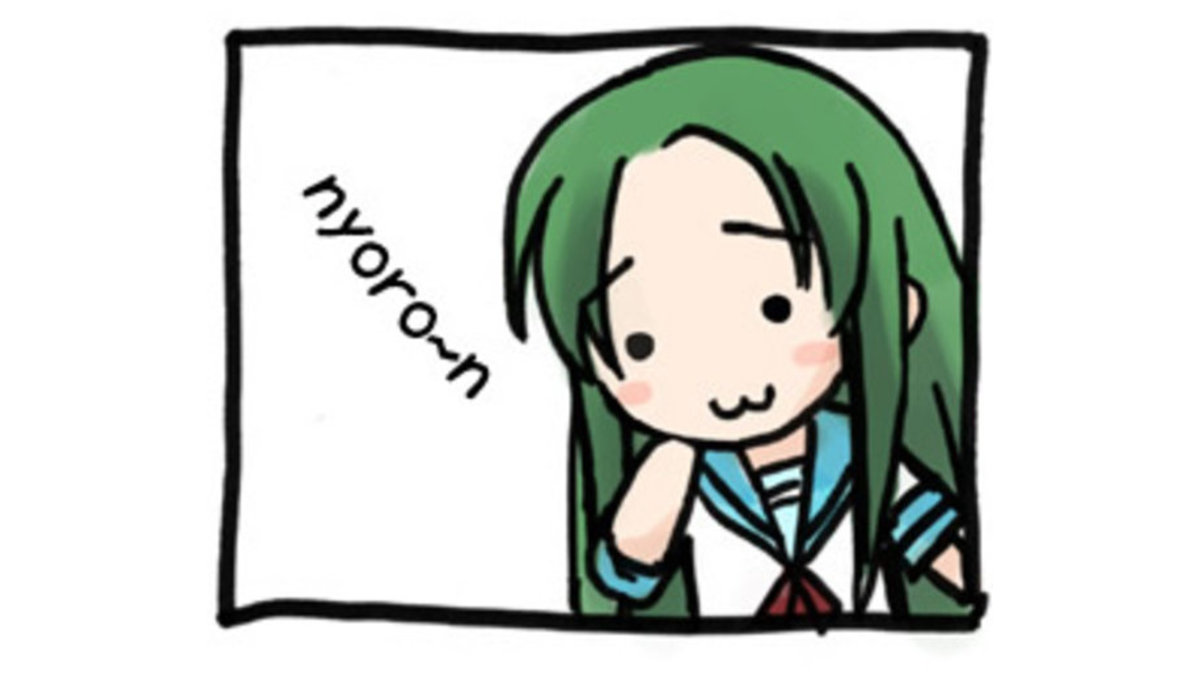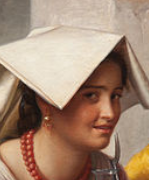I'm a big nerd and I've read a lot of books of all different kinds, and I'm an English teacher.
Tell me what you like or what you're looking for and I'll recommend something I think is good
Also, fun history fact, this comm used to be called c/books until I started posting poetry on main every day in protest of there not being a literature comm. Direct action gets the goods comrades
@ReadFanon@hexbear.net inspired me to compile a list of the recommendations.
It's here on a federated bookwyrm instance.
Got any favorites that kind of... take extra advantage of the the fact that they're books? Metafiction, fourth-wall breaking, unreliable narrators, ergodic literature. Kind of a broad vibe I know, but anything that has fun with the relationship between media and audience
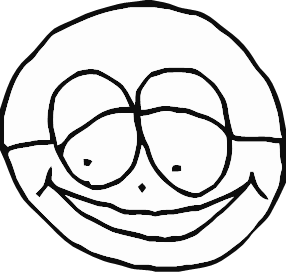
Excellent vibe
Pale Fire by Nabokov
Whores for Gloria by William T. Vollmann
House of Leaves by Mark Danielewski
Only Revolutions also by Danielewski (I'll be honest, I didn't like this one, but it's very much in the vein of what you're talking about)
If one winter's night a traveller by Italo Calvino
Infinite Jest by David Foster Wallace if you want a project
Tristam Shandy by Lawrence Stern if you want a classic
The Posthumous Memoirs of Bras Cubas by Machado de Assis
Hell Don Quixote has a ton of metafiction, and it's arguably the first novel!
House of Leaves is the one I had in mind when writing that so you nailed it. I think the family's actually got copies of some of these so I'll check em out!
I'll also say that John Barthes is very associated with metafiction, but I haven't read much of his stuff
John Barth (I can see why you went with Barthes for his last name though :P )
Do me! I like novels/narratives about marginalized outsiders having strong emotions and/or solving academic mysteries (like LOTE, Little Fish, or anything by Porpentine). Even better if it moves away from realism in service of a more truthful depiction of social reality.
Or, when it comes to poetry, I like high modernist avant-garde stuff like Ezra Pound or Paul Celan, something that really challenges your feeling and knowledge of language.
Academic mysteries - maybe the work of Javier Marias, like All Souls and Your Face Tomorrow?
We have the same taste in poetry. Check out Louis Zukovsky if you haven't already. For novels that challenge your feeling and knowledge of language, Raymond Queneau and the rest of the Oulipo crowd, or Arno Schmidt.
That's the second time in my life someone has recommended Arno Schmidt to me, so I guess I finally have to set aside the time to read Zettels Traum.
It doubles as a fitness program! (I have it but have very much not finished it.)
Schmidt's hard enough to find in English so I'd say start wherever you can. @thethirdgracchi@hexbear.net is another Schmidtite but last we discussed it I think we'd read completely different sections of his oeuvre. I've since caught up on The Stony Heart, though, and it might be my favorite so far. Still need to devote some attention to his later, larger works.
Glad you enjoyed The Stony Heart! It might be my favorite of Schmidt's as well; I go back and forth between so many of his works.
@Pisha@hexbear.net Dalkey Archive is reprinting Nobodaddy's Children this autumn, which is a wonderful place to start. (I would recommend against starting with Zettels Traum at all costs) It's a collection of three loosely connected novellas that are easy to jump into, but give you a crash course in Schmidt's particular type of language and concerns. The /r/Arno_Schmidt subreddit is doing a reading group for the book if you're interested: https://old.reddit.com/r/Arno_Schmidt/comments/1654e6y/announcing_rarno_schmidts_nobodaddys_children/
I'll check it out! I'd be reading it in the original though; hopefully, that's not a problem. I've ordered the book from the library and if it shows up on time, I'll probably be there at the reading group.
Can't imagine reading it in the original is a problem; in fact, more of an asset. Jealous that you know German; virtually all of my favorite writers write in German.
German is such a useless language for traveling anywhere in the world or interacting with other cultures, but it does give access to some great literature and philosophy, so I try to make the best of it.
Ooh these are some good ones, but I'll leave aside the poetry because I'm much more a prose guy
The first thing that comes to mind is to combine your love of modernism and of outsiders with gigantic emotions and recommend some D.H. Lawrence like Sons and lovers or Women in Love
I'd also recommend They by Kay Dick. This one blew my face off when I read it recently.
Maybe If on a winter's night a traveller by Italo Calvino
Maybe Rent Boy by Gary Indiana
Maybe Piranesi by Susanna Clarke
Maybe Babel by R.F. Kuang
Idk if any of these have everything you're looking for, maybe there's something here you could vibe with
Also I played And Those We Love Alive by Porpentine a while back and loved it btw
Wow, thanks! I've never even heard of a number of those, so I'll definitely have to check them out.
First mention of Gary Indiana I've seen on this site, or indeed most of the web. Absolutely love him; Resentment is such a perfect encapsulation of the particularly American derangements of modernity. Lives rent free in my head.
Just read Three Month Fever and it was great. Can't believe I only heard of this guy relatively recently
His interview in the Paris Review is fantastic, that's how I leanrsd about him. I'll see if I can find a copy.
OK I made a PDF of it since archive.is didn't work: https://file.io/GulgFAOj7NiW (actual URL is https://www.theparisreview.org/interviews/7852/the-art-of-fiction-no-250-gary-indiana)
I've been a big fan of Steinbeck since reading Of Mice and Men in school, I chomped up Grapes of Wrath and it was rad, hugest book I've ever read but gripping. Any recommendations along the same writing/meta themes? I'm not really fussed about the Great Depression, but that gripping exploration of characters and their interaction with societal expectations really does it for me. Alternatively I'll take some post-apocalypse suggestions.
Cormac McCarthy is a really good go-to for post apocalyptic novels.
Turns out he just recently passed away. RIP to a hell of an author.
He passed away right after putting out a double novel. What a king
Tough one, but very interesting. Let's see
The Instructions by Adam Levin
The Last September by Elizabeth Bowen
Jude the Obscure by Thomas Hardy
Passing by Nella Larsen
The Manhattan Transfer by John Dos Passos
I'd be way more annoying and recommend Piers Anthony books if I was doing a bit
My hot tip is to do an ADHD screening test just to rule it out as a possibility because you're saying exactly what undiagnosed, unmedicated me would have said.
What sort of nonfiction stuff are you talking, if you don't mind me asking?
I find that with nonfiction like microhistory I can just immerse myself in it because it's written for a brain like mine.
For theory, I strongly recommend participating in a reading group if there's one available. You can substitute this for theory podcasts and/or following the discussion on a social media platform from a past reading group and considering the comments that people make along with coming up with responses to those comments (even if you don't actually post them) because being a part of a discussion brings a richness to the reading and it helps to keep motivation up.
When it comes to legit history, that's tough. Either I slog through it and do my best, knowing that unless the book is written exceptionally well, I'm just not going to wring everything out of the reading that a scholar would (and that's fine) or I try to find a good overview of the historical subject to help me familiarise myself with the main figures/movements/events etc. so that I can contextualise the info I get while reading the book - this might be a video essay, a lecture, or a book that is oriented towards beginners to use as a primer.
Things like biographies are hit and miss imo and it really depends on the author's ability to write and how good they are at research.
I know exactly what you mean.
One of the things that might resonate is the fact that an ADHD brain is motivated by different factors, in particular:
- Interest
- Competition
- Novelty
- Urgency
So if you can stoke one (or ideally more) of these things then you should be able to get motivation to read or to complete other tasks that you have been struggling to initiate.
Interest is a tricky one but if you can spark your interest by parlaying your current interests into where you want to focus, it becomes easier (this is a tricky skill to describe but as an example, I love cooking and I hate chemistry. The only ways that I've been able to engage with chemistry have been by making what you might call Improvised Ex... citement Devices back when I was a teen [not the kinky kind!] or by using my interest in cooking to learn about food science to learn about chemistry.)
Competition is easier. Race the clock, put artificial deadlines on yourself, make a commitment to talk to a person about a chapter of a book, participate in an online course where the deadlines are set for you, that sort of thing. When you're racing against something, you'll be better able to focus in and remain focused. This overlaps with urgency in many respects.
Novelty can be a bit tricky but some people benefit from reading more than one book at a time and switching between them when one gets boring. I can't do that because my brain goes on deep-dives and pulling myself out of one rabbithole and into another is too difficult. But as Foucault has suggested, different settings can definitely help with a sense of novelty.
Know that your motivation will ebb and flow and try to ride the wave rather than swimming against the tide because the latter will sap your executive function and forcing things will onlymake it harder.
I often use discussions (and arguments) online to motivate me into reading more. Often I've read the important parts of a book but getting in depth on a topic makes me excited about it and it can motivate me to read more of the book that I'm referencing because I feel this renewed sense of purpose in reading up because it feels more relevant somehow. If you can find a person close to you (or someone on social media) who is open to it, try reporting back to them about what you've learned or what's happening in the story. This can help keep the motivation up by making it more external.
Moderate or heavy exercise, even fairly short amounts of it, can have a significant positive effect on ADHD brains for focus. That might mean running or cycling or even just doing 5 mins of jump rope but if you really want to get focused without medication then that sort of exercise can go a long way.
Other options are: some people report good effects from taking L-tyrosine or L-dopa supplements, some people have been known to import Modafinil on the gray market to use that because it's one of the second-line meds used to treat ADHD. YMMV on these but it's worth considering.
Mostly no. My brain does not work like most people's regarding books, I've learned over the years
But one thing you might try is reading out of the house at a park, a coffee shop, or wherever, where there are fewer distractions
Butcher's Crossing was pretty good, as are basically any of the Mcarthy border trilogy.
Warlock, by Oakley Hall
The Big Sky and The Way West by A.B. Guthrie
The Ox-Bow Incident, by Walter van Tilburg Clark
Lonesome Dove, by Larry McMurtry
And seconding Butcher's Crossing
I don't have good recommendations for this. I'll second McCarthy, but those are also kind of anti-Westerns
I assume you're asking about literary fiction with an explicit political stance that's pretty approachable
The Dispossessed by Ursula K. Le Guinn
Things Fall Apart by China Achebe
Might add more if I think of any
I’ve fallen out of fiction novels except for Agatha Christie mystery novels, but I’d love to find something that really wraps back in. Dostoyevsky, Danieliewski, Vonnegut, and Chabon are some kind of far recent authors I’ve read that I love. Anything maybe very much literature but kind of darker, thoughtful, maybe mysterious sort of plot type of books come to mind?
Hell yes.
Off the top of my head
The Pale King, David Foster Wallace's last, unfinished novel.
The Employees by Olga Ravn
The Wasp Factory by Iain M. Banks
Naked Lunch by William Burroughs
Crash by J.G. Ballard
Waiting for the unabridged Capital Vol. 1-3 as answer (which would not be a good answer!).
What age(s) are we talking here? That's going to be a big determinant on what sort of books would be suitable.
I think that instilling values that are amenable to communism is probably the best route rather than reading Mao's Little Red Book to them before tucking them into bed, unless they are in their teen years at which point you'd be able suggest more overtly political stuff for them to engage with.
Ursula Le Guin wrote YA fiction and her work has a plenty of pro-communist messages, so that might be a good author to consider depending on the age of the audience.
I'm interested in bedtime stories to read to 0-6 year olds, not theory. But also YA fiction for kids who startend reading on their own. Thanks comrade!
Your kid that is starting to read on their own might like Gregor the Overlander! The way it describes poverty was spot on for a kids book and had some nice messages.
Its about a boy, Gregor, who finds a way to this underground realm where there are giant talking animals and humans whove adapted to the environment. Its by the same author who wrote the hunger games
Might be too advanced now that I'm thinking about it, I don't interact with kids often so I'm not sure if it would be an appropriate reading level but could make a fun family reading thing
When they're a old enough to handle the heavier themes in the book, Red Rosa might be a good choice.
I like depressed intellectuals getting drunk as the world crumbles around them. Joseph Roth and Roberto Bolano have been my favorites of late. Anything along those line you're familiar with?
I'll throw in Bulgakov as well though I read his stuff longer ago.
Love both of those guys. How about Gregor von Rezzori? Memoirs of an Anti-Semite is his best.
There's not as much alcoholism, but if you like depressed intellectuals and your favorite Bolaño book is By Night in Chile, check out my main man Thomas Bernhard and all the other novels inspired by his, like Gaddis's Agape Agape and Hector Castellanos Moya's Revulsion: Thomas Bernhard in San Salvador. I actually first got into Bernhard after he was referenced in Bolaño's 2666.
Edit - for some serious alcoholism, Havoc, by Tom Kristensen. Amusingly enough, includes a communist character named Bernhard Sanders.
I actually started Memoirs of an Anti-Semite, but it dovetailed from Roth in that while Roth's characters are not sexless, their sexuality is always just sort of lurking in the background and only comes through in certain moments of perceived moral failing. Memoirs of an Anti-Semite seemed way more upfront in those depictions which sort of pulled me our of it about 100 pages in.
Jesus' Son by Denis Johnson
Whores for Gloria by William T. Vollmann
Suttree by Cormac McCarthy
Confederacy of Dunces by John Kennedy O'Toole
This isn't quite what you're asking about but it is about an alcoholic and is very good: The Lonely Passion of Judith Hearne by Brian Moore
I can, but in good conscience, I can't recommend the other ones
Dune Messiah is a great follow up for anyone who enjoyed the first book. Children gets weird and while I enjoyed it I won't defend with fervor like I will Messiah.
Would you happen to know any good books about linguistics, languages, language learning or teaching, that sort of thing? Preferably around 200-300 pages, fairly light in its writing style (though it can use technical terms), and with information that isn't too beginner-level. This summer I read Because Internet and The Art of Language Invention, and these were the first books that I've actually held in my hands and read from start to finish in... many years.
So I want more of that, basically.
Eliot Weinberger's 19 Ways of Looking at Wang Wei
David Bellos's Is That a FIsh in Your Ear?: Translation and the Meaning of Everything
John McWhorter's linguistics books (yes, his politics are absolutely terrible, but ignore his NYT column and his anti-woke book and enjoy stealing and reading Our Magnificent Bastard Tongue and The Language Hoax)
Andrea Marcolongo's The Ingenious Language, but only if you don't already know Greek. Likewise Mary Norris's book on Greek.
I'd heard of that first one, incidentally, so I really would like to check that one out. Thanks for all the recommendations!
I love that stuff too, but honestly I don't have any good recommendations
I also really liked China Mieville's Bas lag series. I like his other stuff too, but I really enjoyed his forays into weird fiction. Can you recommend anything like that from other authors?
H.P. Lovecraft is the original weird fiction writer. He even popularized the term. The guy was a racist crank and complete weirdo failson, but he was one of the best to ever do it. YMMV
The stories of Franz Kafka
The stories of Jorge Luis Borges. I'd recommend Tlön, Uqbar, Orbis Tertius as a good one to start with
The stories of Thomas Ligotti
But if you want some real weird shit, I'd recommend Cyclonopedia: A Complicity with Anonymous Materials. I've never gotten a single other person to read this one lmao
Y'know, I've been meaning to read Conspiracy Against the Human Race for ages now and I just know that it'd etch itself into my brain indelibly so I've been avoiding it because my mental health is trash and... I feel like it'd be a bad idea to be engaging with deep existential horror with where I'm at.
He's quite good. Hopefully you find yourself on a more even keel soon


